News
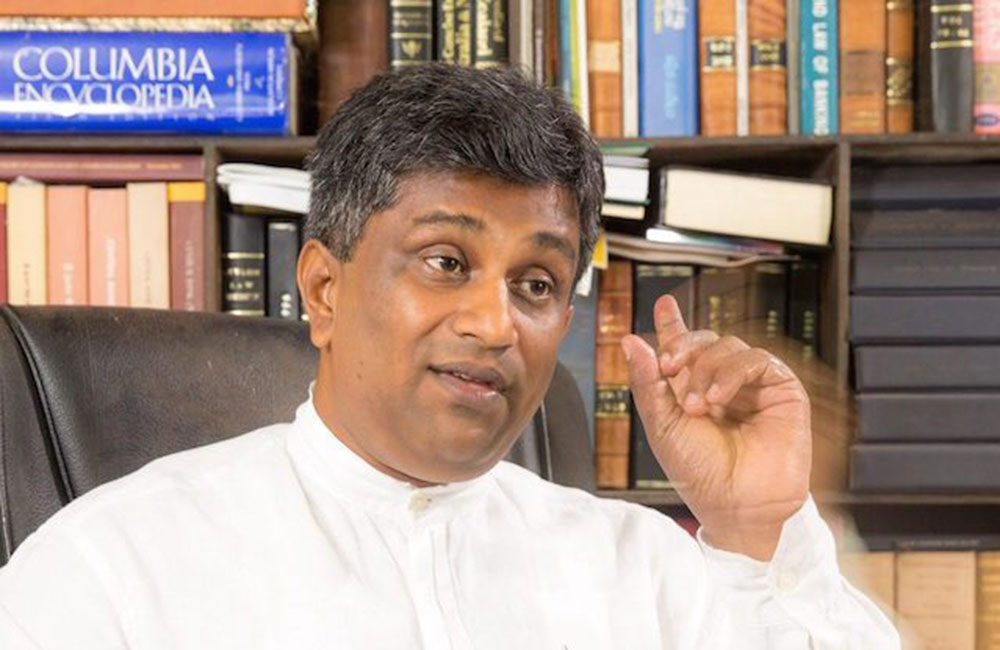
Colombo elite vote alone won't ensure UNP victory: Ajith
Minister Ajith P. Perera in an interview with The Hindu newspaper has made a case for United National Party (UNP) Deputy Leader, Minster Sajith Premadasa’s candidacy at the presidential election saying the UNP cannot win an election only with the support of the Colombo elite.
Perera has said that this is the reason why the UNP should field Premadasa as its presidential candidate.
“Though he is western-educated, Sajith Premadasa is very grounded and has a connect with ordinary citizens in a way that no other UNP leader has,” Perera has observed.
“We can’t win an election with just the Colombo elite supporting us,” Perera has said.
“The majority of our MPs are with him, and a majority of our working committee members want him to contest. Backbenchers have also decided to support him,” he has further noted.
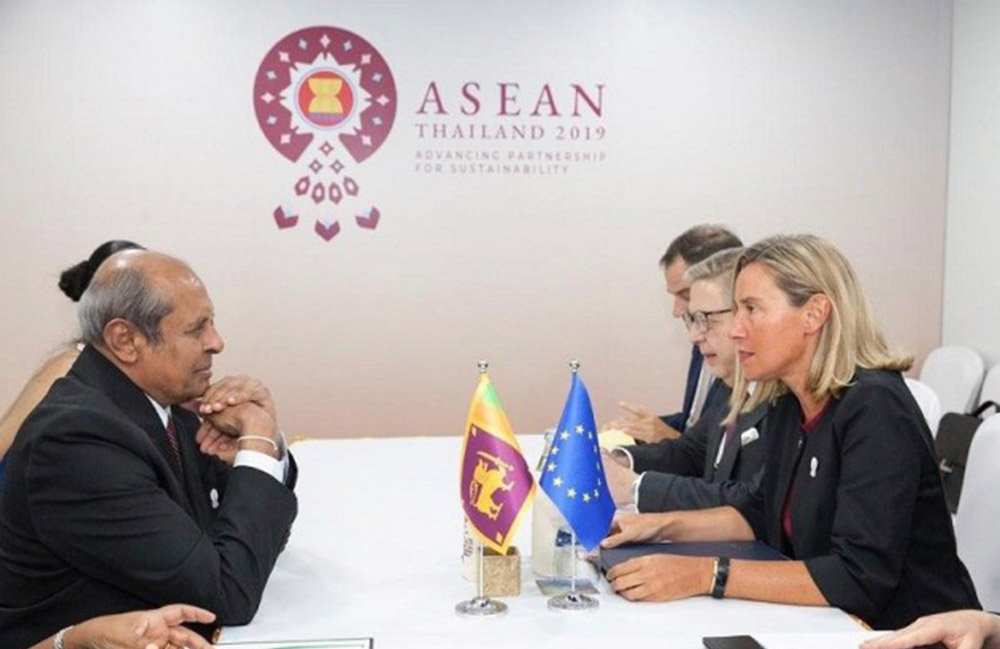
Sri Lanka gets funds from EC to promote peace and tolerance
Sri Lanka is to receive €8.5 million from the European Commission (EC) to support the country’s efforts to prevent violent extremism, build community resilience, and promote peace and tolerance.
It is also aimed at contributing to the ongoing peacebuilding process through internally displaced persons and refugees being able to return to their land.
This allocation comes after High Representative/Vice-President Federica Mogherini’s meeting earlier this month with Sri Lanka’s Foreign Minister, where she underlined the European Union’s readiness to support Sri Lanka in the face of the challenges of terrorism and violent extremism.
The €8.5 million Commission support will follow a three-pronged approach: It will support Sri Lankan policy makers, competent authorities and the security and judicial branches in their mission to prevent and respond to terrorist threats and attacks in a human rights compliant manner; it will focus on the prevention of violent extremism and will support relevant local stakeholders to develop and disseminate positive awareness raising campaigns, notably via partnerships with global social media actors; and it will contribute to the last stages of mine clearance in the three northern districts of Sri Lanka, and focus on peacebuilding to reinforce national cohesion and reconciliation.
According to the EC, the Easter Sunday terrorist attacks in Sri Lanka in April killed 258 people and injured many more and preventing and responding to terrorist attacks like this is an additional challenge for the country along with numerous other challenges.
These challenges are in transitioning to durable peace after many years of conflict, such as refugees, internally displaced persons, and land identified as potentially contaminated with mines and explosive remnants.
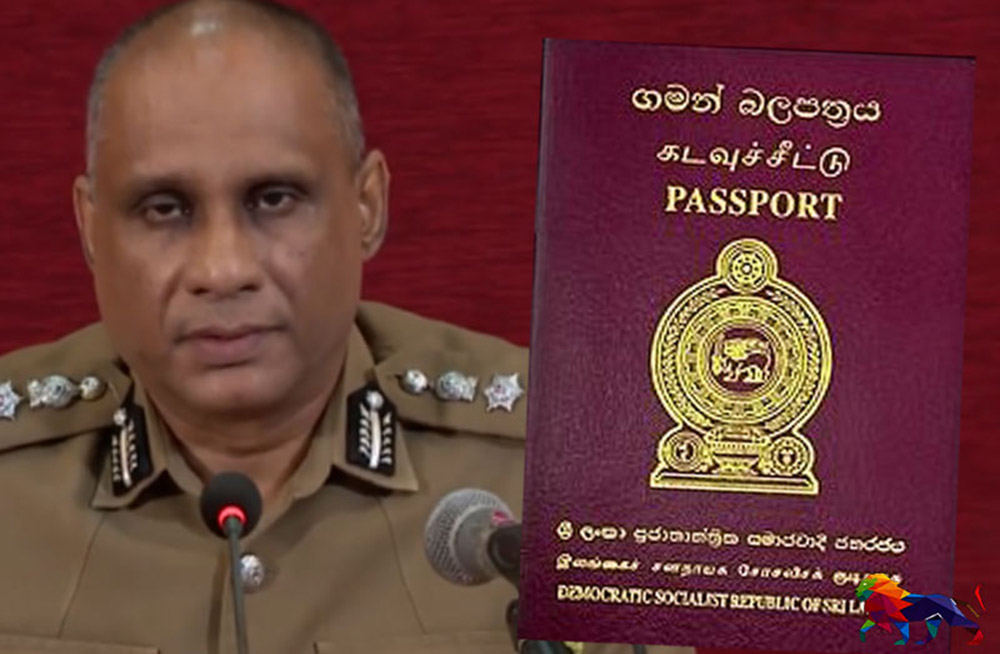
Acting IGP directs CCD to probe Gota's passport
The police probe being carried out into the alleged irregularities in the issuing of a new passport to the Sri Lanka Podujana Peramuna (SLPP) presidential candidate Gotabaya Rajapaksa is now under pressure with Rajapaksa loyalists exerting pressure on the police department to stall the probe.
Police sources said that following the revelation that Gotabaya’s name has not been included in the 2nd quarter list released by the US on the individuals who had requested to renounce their US citizenships, pressure was now mounting on the police to stop investigating into the Sri Lankan passport issue.
It is in such a backdrop that the Acting IGP Chandana Wickremaratne has moved to assign the police probe on the alleged irregularities in Gotabaya’s Sri Lankan passport to the Colombo Crimes Division (CCD), police sources say.
The probe was initially handled by the Criminal Investigations Department (CID), but the Acting IGP has now reassigned the probe to the CCD.
The probe was launched following two complaints seeking an inquiry in to the allegations was sent to the Acting IGP by civil society activists. The two complaints were first forwarded to the CID.
However, some senior police officers are trying to maintain that the police is not probing into the issue, but merely inquiring to determine whether there is a necessity to carry out a probe.
Gota still a US citizen
Gotabaya’s name was not included in the official US Government publication “Quarterly Publication of Individuals, Who Have Chosen To Expatriate”, or renounce US citizenship, in the 2nd quarter of 2019 - covering 1 March to 30 June.
Gotabaya’s name did not appear in the 1st quarter list and it was stated by his loyalists at the time that he had submitted his papers end of April and therefore did not make it to the list. They stated that Gotabaya’s name would appear in the 2nd quarter list. However, the latest 2nd quarter list does not include the name of the SLPP presidential candidate casting doubts over his candidacy since it seem he still remains a citizen of the US.
Gotabaya claimed that he received official confirmation on May 3 from the US Government that he was not considered a US citizen.
A document was then published by some media organizations, which he said confirmed he has renounced his citizenship.
However, the US Government, in its Federal Register - the equivalent of the Gazette published by the Sri Lankan Government - publishes a list of US citizens who have lost or given up their citizenship in the previous quarter every three months.
Accordingly, the most recent filing, a 17-page document, dated August 7, 2019 and covering the 2nd quarter does not include Gotabaya’s name.
The document states, “the listing contains the name of each individual losing United States citizenship, with respect to whom the Secretary received information during the quarter ending 30 June 2019.”
According to Article 91 of the Constitution of the Democratic Socialist Republic of Sri Lanka, no person can contest the Presidency or serve as President if they are a citizen of any country other than Sri Lanka.
Related News:
Controversy over Gota's new passport
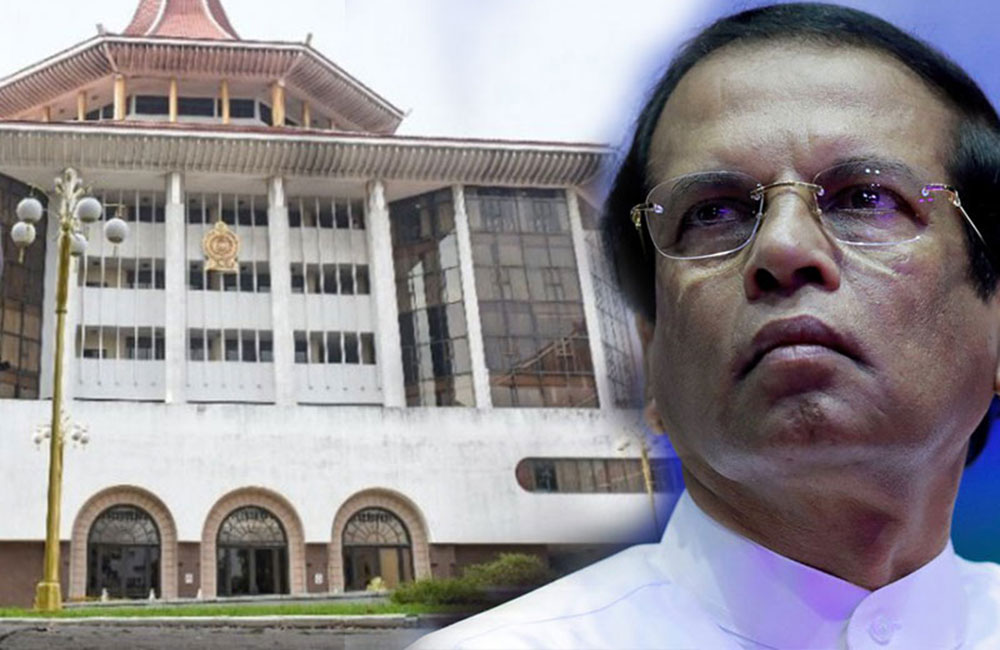
Supreme Court to consider President's PC polls request
The Supreme Court (SC) has fixed Friday (23) to take up the request presented by President Maithripala Sirisena seeking the Court’s observation on the possibility of holding the delayed provincial council (PC) polls under the old electoral system.
The President has sought the Supreme Court’s observation on holding the provincial council elections under the old electoral system since the delimitation report has not received parliamentary approval. The request has been made under Clause 129 (1) of the Constitution.
The Supreme Court has in writing informed the Bar Association of Sri Lanka (BASL) about the request made by the President and has sought the BASL to send in any observations of its own on the matter to the Court before Wednesday (21).
The Supreme Court is to take up the Presidential request for consideration at 10 a.m. on the 23rd.
Accordingly, the observations are to be sent to the President before the 30th of this month.
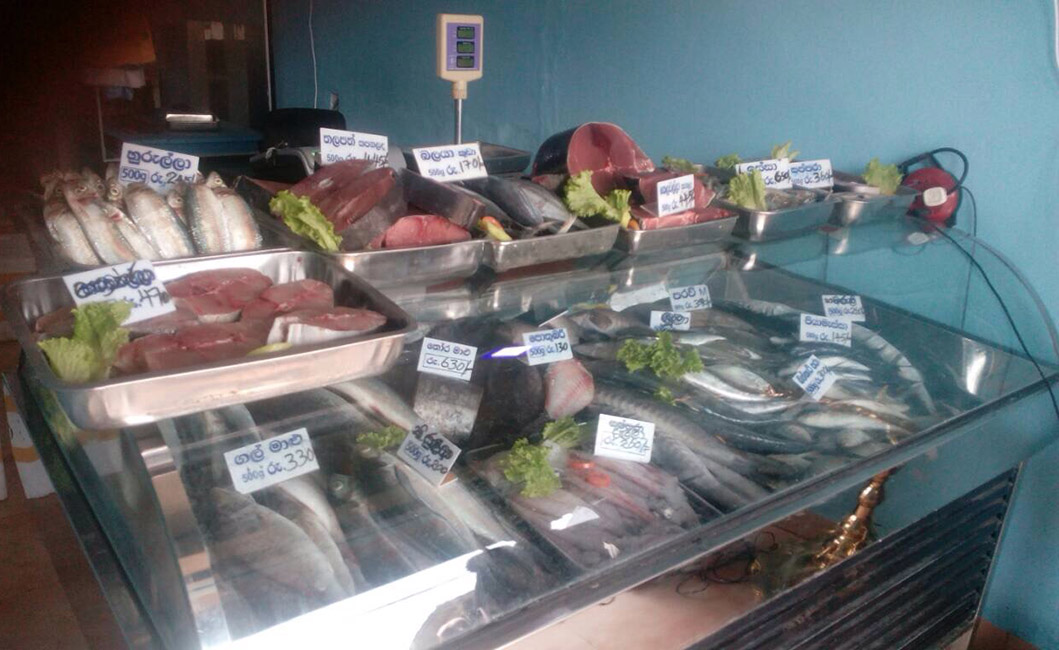
State fish procurement and supply spoil with corruption
The Fisheries Corporation is now incapable of meeting the fish requirement of consumers due to inefficient management, lack of supervision in the procurement process and malpractices including paying huge commissions to middlemen.
The corporation has targeted to purchase 7200 metric tons of fish by spending a sum of Rs. 2,592 million in the year 2017/2018 under review.
According to the progress report, 3329 metric tons of fish had only been purchased only by spending a sum of Rs.1, 381 million.
Although it was targeted to earn an income of Rs. 3,375 million by selling 7200 metric tons of fish, an income of Rs. 1,915 million had been earned only by selling of 3857 metric tons.
Accordingly, the Fisheries Corporation had failed to reach the sales target by 46 per cent. Further, they have also failed to supply fish at concessionary prices which is the Corporation's main objective.
The Fisheries Corporation has changed the present system of procuring fish and instead introduced a direct purchasing method of fish stocks from the fisher folk on the shore without the involvement of middlemen.
The new method will be able to save a massive amount of commissions paid to the middlemen can and quality fish can be provided to the consumers at low prices.
It has been revealed that at some occasions, the middlemen's commission amounts to Rs. 30-40 per kilo of fish.
He said around Rs. 6 million is due from the Fisheries Corporation to fishermen for fish supplied during the months of April and May.
Official data revealed that a sum of nearly 270 million has been outstanding since 2015.
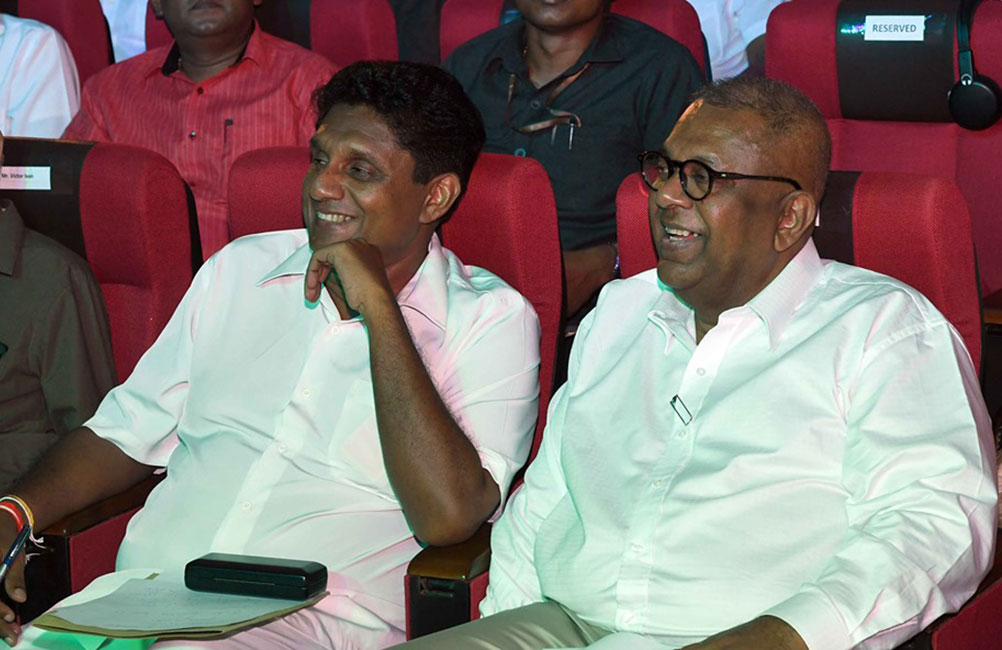
Dawn of a new era; Sajith in Matara on the 23rd
All arrangements have been made to hold a massive public rally under the patronage of United National Party (UNP) Deputy Leader, Minister Sajith Premadasa at the Sanath Jayasuriya Stadium in Matara on Friday (23).
The rally is being organised by the UNP Matara electoral committee under the guidance of Finance Minister Mangala Samaraweera and a large number of UNP ministers and parliamentarians are scheduled to participate at the event.
After the Matara public rally, arrangements have been made to hold a massive rally at the Galle Face Green during the first week of September to announce the presidential candidate of the United National Front (UNF).
Kabir’s hint on UNP candidate
A large number of UNP activists at grass root level are now making statements to the media stating that the UNP has to field Premadasa if the party wants to win at the next presidential election.
Meanwhile, a group of former local government representatives of the UNP has adopted a motion calling for the announcing of Premadasa as the UNP’s candidate at the next presidential election.
It is in such a backdrop that UNP Chairman, Minister Kabir Hashim has issued a statement saying that the party will take steps to select its presidential candidate in a democratic manner and announce the decision to the public shortly.
The statement further notes that the candidate of the UNP will not be one who is facing litigation before court nor have any public allegations leveled against him.
According to the statement, the UNP candidate will be one who will be able to steer the country in to the future, understand the grief of the poor and an educated as well as a law abiding citizen.
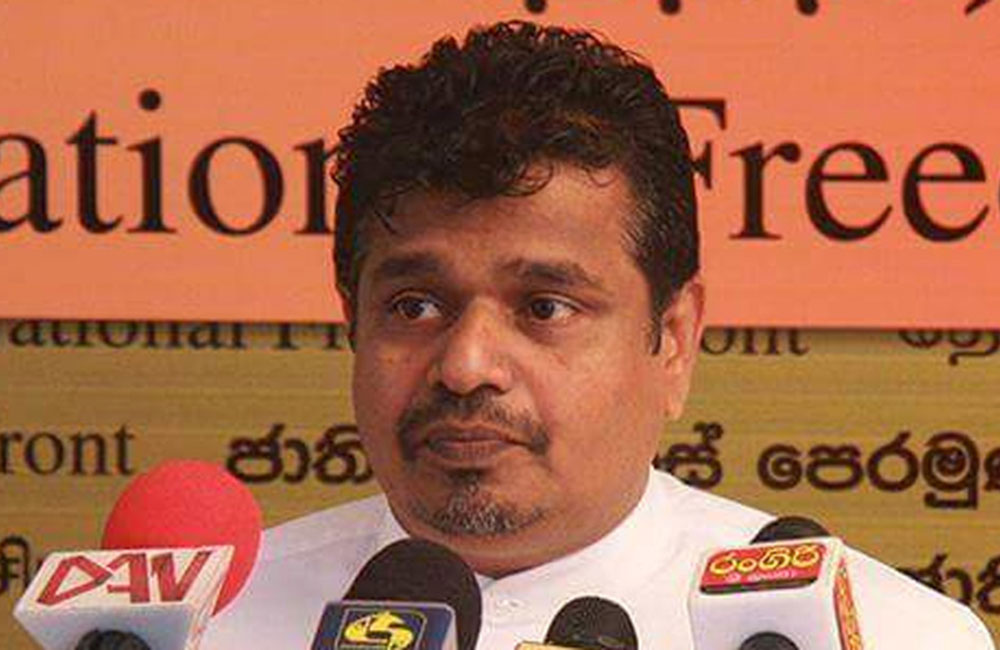
Weerakumara reveals the groups trying to defeat Gota
Two groups that are currently with the Sri Lanka Podujana Peramuna (SLPP) presidential candidate, Gotabaya Rajapaksa that are working to defeat him have been revealed by United People’s Freedom Alliance (UPFA) MP Weerakumara Dissanayake.
Dissanayake told a news briefing that these two groups under the guise of being Rajapaksa’s loyalists were in fact working to ensure his defeat at the presidential elections.
Dissanayake explaining about these two groups explained that one group was working in a manner that would distance the minority communities from him (Gotabaya) while the other group was making very critical comments of the Sri Lanka Freedom Party (SLFP), which would result in the distancing of the SLFP voters.
According to him, Rajapaksa needs to be mindful of these two groups when carrying out his campaign work.
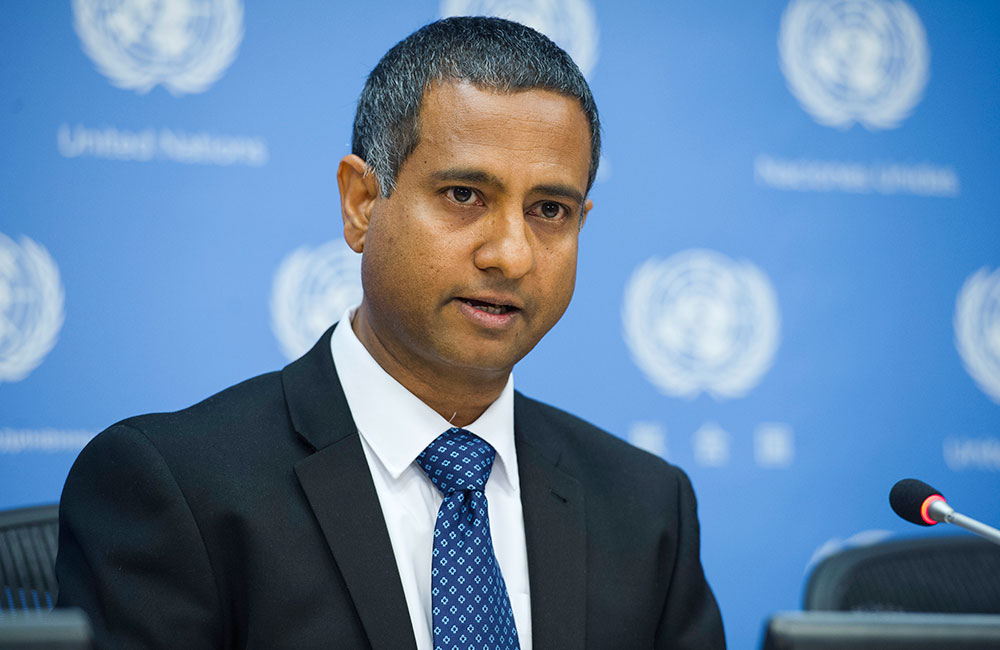
UN Special Rapporteur on Freedom of Religion or Belief to visit SL
The UN Special Rapporteur on Freedom of Religion or Belief, Ahmed Shaheed is to visit Sri Lanka tomorrow (15) on a 12 day official tour that will end on Monday (26).
“I will look at how Sri Lanka promotes and protects the rights to freedom of religion or belief. The visit will be an opportunity for me to have an open exchange with the Government to try to gain a better understanding of how it upholds these rights,” Shaheed said.
“I also look forward to learning about the efforts of the Government in developing and maintaining peaceful coexistence among different religious communities.”
Shaheed is to examine the progress made by Sri Lanka in the implementation of recommendations made by former UN Special Rapporteur on Freedom of Religion or Belief, Asma Jahangir, who visited Sri Lanka in 2005.
Shaheed will also aim to identify any existing or emerging obstacles to the enjoyment of the freedom of religion or belief in Sri Lanka by all and will present recommendations aimed at overcoming such obstacles.
During his Sri Lankan mission, Shaheed is to meet government officials, representatives of religious or belief communities, civil society organisations and the UN and is to also visit areas out of Colombo.
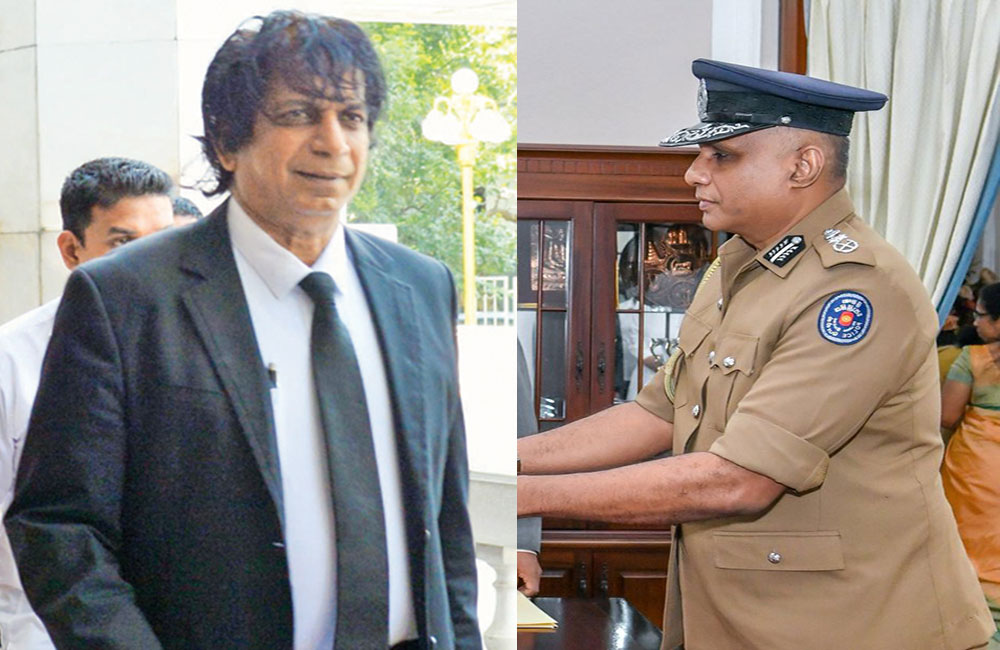
AG directs Acting IGP to conclude high profile cases
The Attorney General (AG) has instructed the Acting IGP to expedite the police investigations into several high-profile cases and to conclude them soon.
The high profile cases referred to by the Attorney General include the murders of Editor of The Sunday Leader, Lasantha Wickrematunge, Sri Lanka rugby player Wasim Thajudeen, the 17 aid workers in 2006 and the abduction of journalist Keith Noyahr as well as the abduction and disappearance of 11 Tamil youths.
The Attorney General has instructed the Acting IGP to conclude investigations into the cases without delay and to submit the completed filed to the Attorney General’s Department for the filing of charges.
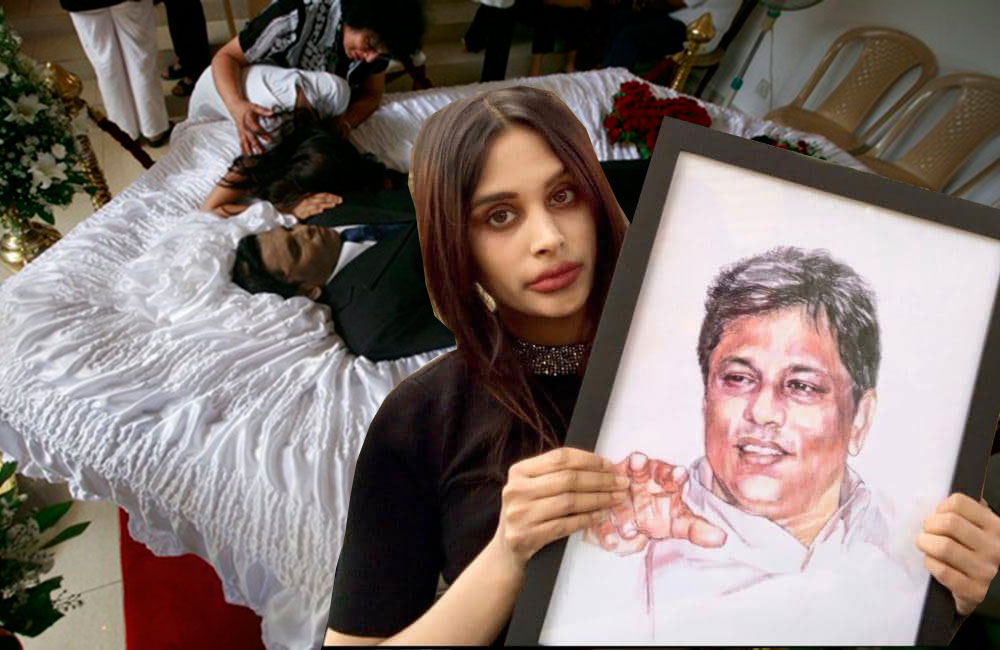
Ahimsa slams RW for protecting a mass murderer
Ahimsa Wickrematunge, the daughter of the slain Sunday Leader editor, Lasantha Wickrematunge in a letter to United National Party (UNP) Leader, Prime Minister Ranil Wickremesinghe has charged that the latter has used Lasantha Wickrematunge’s name only to win votes and has actively worked to protect his murderers.
She notes that there would not be any justice for Lasantha as long as the country remains at the mercy of the likes of Wickremesinghe and former Defence Secretary and presidential hopeful, Gotabaya Rajapaksa.
“Will you apologise for spending the last four and a half years protecting and cavorting with the man you today call a mass murderer (Gotabaya)?” Ahimsa questions in a hard hitting letter to Wickremesinge.
She further notes, “You brought President Sirisena to power and won control of Parliament for the UNP, all by promising justice for my father’s murder.”
Ahimsa alleges that Wickremesinghe’s priorities changed once in office, “As soon as you came to power, your priorities changed. When I met you at Temple Trees in February 2015 to appeal for your support in making sure my father’s killers saw justice, you told me that there were “other priorities” and that justice was “not just about Lasantha.”
Ahimsa has also taken a swipe at Wickremesinghe’s Chief of Staff, Minister Sagala Ratnayake. “Because it is election season, you are publicly attacking him (Gotabaya) as a killer. But even as you do so, your Chief of Staff Sagala Ratnayake and other ministers are visiting him and spending hours at his residence.”
She adds, “your government is allegedly issuing him irregular identity cards and passports and your senior aide and niece is openly promoting Gotabaya Rajapaksa’s campaign propaganda on social media.
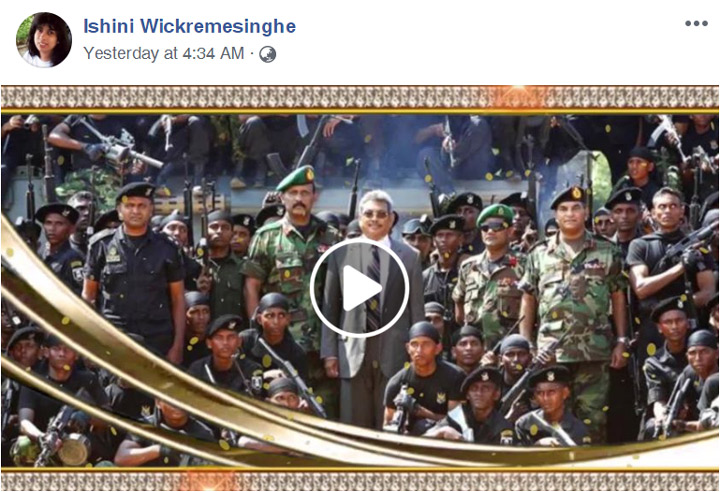
The letter sent by Ahimsa Wickrematunge to Prime Minister Ranil Wickremesinghe is found below.
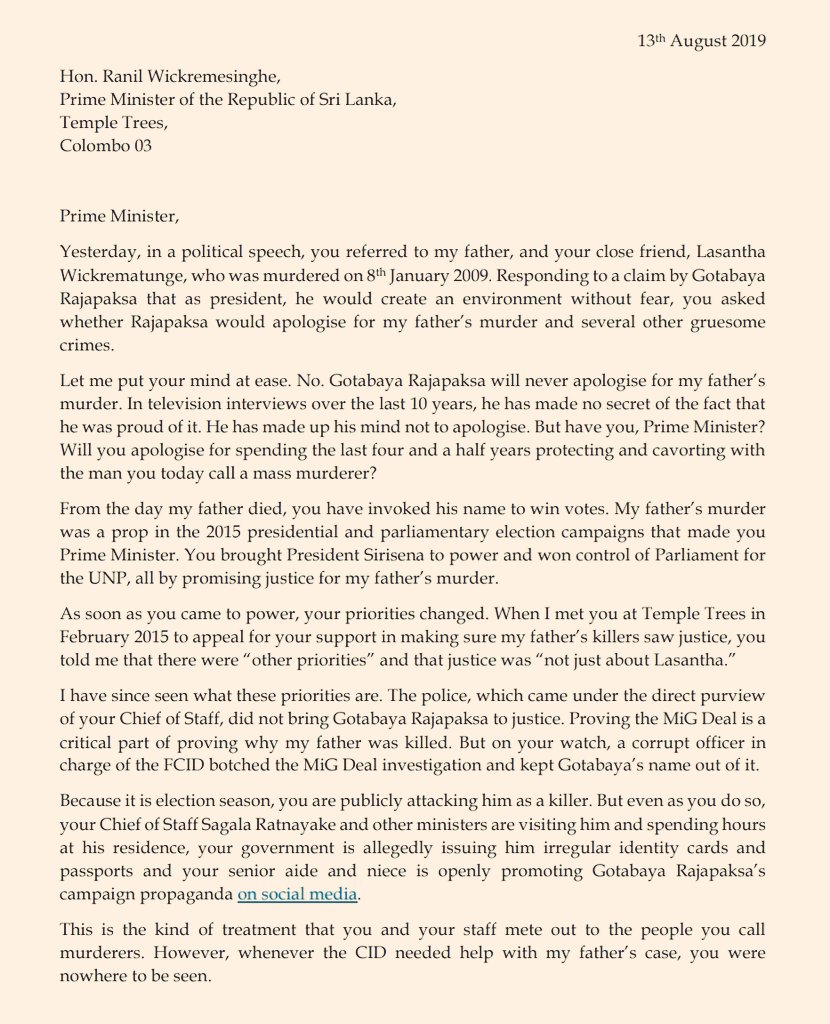
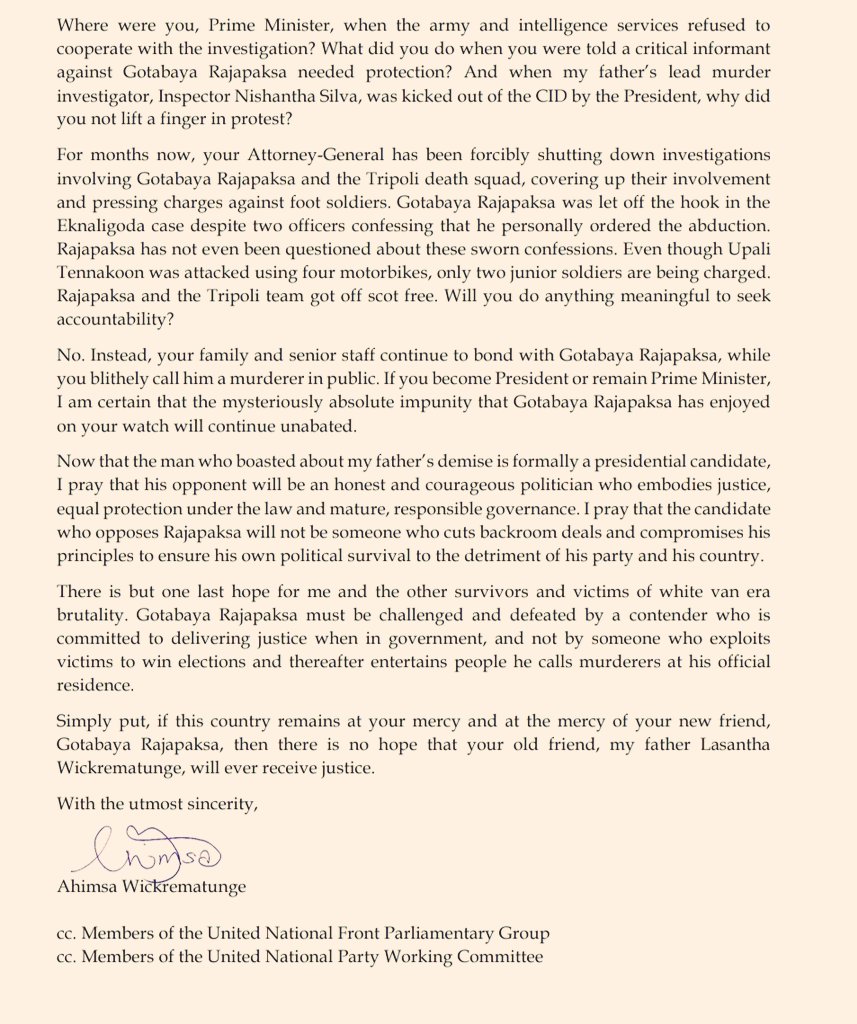
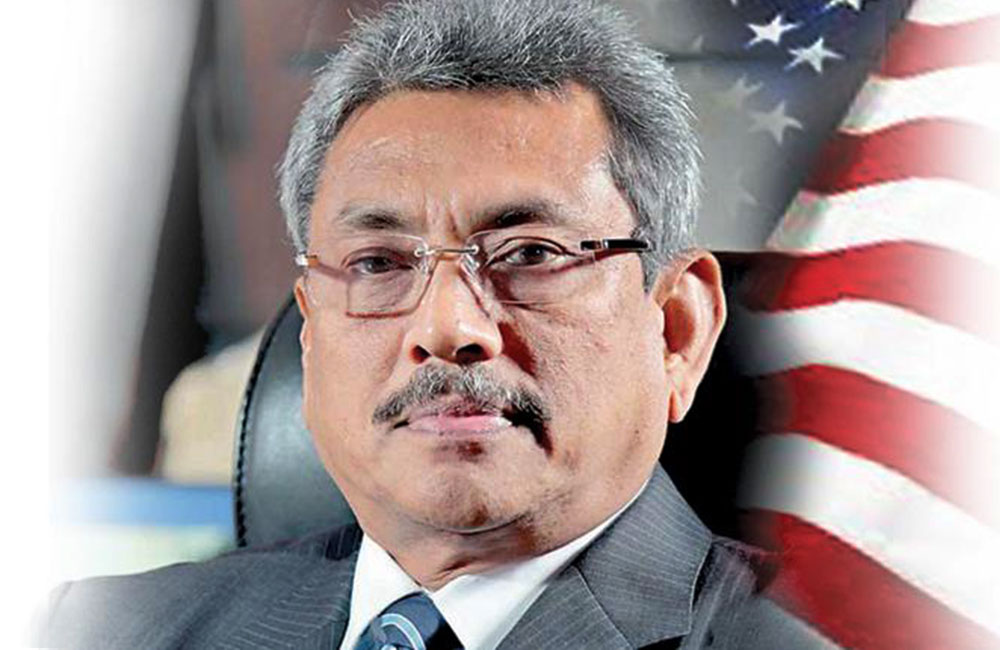
Gota still a US citizen?
Sri Lanka Podujana Peramuna (SLPP) presidential candidate Gotabaya Rajapaksa’s name has not been included in the official US Government publication “Quarterly Publication of Individuals, Who Have Chosen To Expatriate”, or renounce US citizenship, in the 2nd quarter of 2019 - covering 1 March to 30 June.
Gotabaya’s name did not appear in the 1st quarter list and it was stated by his loyalists at the time that he had submitted his papers end of April and therefore did not make it to the list. They stated that Gotabaya’s name would appear in the 2nd quarter list. However, the latest 2nd quarter list does not include the name of the SLPP presidential candidate casting doubts over his candidacy since it seem he still remains a citizen of the US.
Gotabaya claimed that he received official confirmation on May 3 from the US Government that he was not considered a US citizen.
A document was then published by some media organizations, which he said confirmed he has renounced his citizenship.
However, the US Government, in its Federal Register - the equivalent of the Gazette published by the Sri Lankan Government - publishes a list of US citizens who have lost or given up their citizenship in the previous quarter every three months.
Accordingly, the most recent filing, a 17-page document, dated August 7, 2019 and covering the 2nd quarter does not include Gotabaya’s name.
The document states, “the listing contains the name of each individual losing United States citizenship, with respect to whom the Secretary received information during the quarter ending 30 June 2019.”
According to Article 91 of the Constitution of the Democratic Socialist Republic of Sri Lanka, no person can contest the Presidency or serve as President if they are a citizen of any country other than Sri Lanka.
Citizenship issues
Meanwhile, Gotabaya told the media that a further confirmation of his renunciation of the US citizenship was the new Sri Lankan passport obtained by him, without the dual citizen stamp.
He claimed that the Immigration and Emigration Controller General has accepted him as a Sri Lankan citizen.
However, details then started to emerge on the irregularities involved in the manner in which the Sri Lankan passport was issued and Gotabaya’s dual citizenship issues.
It has also been revealed that Gotabaya has not made an application under the Citizenship Act and that his new passport has been issued under a new National ID that is unconnected to border control records.
It is also learnt that Gotabaya’s passport application was received and processed by the Immigration and Emigration Department on an urgent basis on May 7, this year after 3.00 p.m., which is the cut-off time for new applications.
Also, Gotabaya had not appeared at the Immigration Department to be finger-printed, and the passport was issued in a matter of hours under a new National ID card number that is not connected to Gotabaya’s previous NIC or border control records.
Gotabaya has reportedly obtained the new passport from the Immigration and Emigration Department in May without the dual-citizen stamp.
According to Gotabaya, this new Sri Lankan passport was proof that he was no longer a dual citizen under Sri Lankan law.
According to immigration officials, persons with dual citizen status are required to make a formal application under the Citizenship Act if they wish to regain regular Sri Lankan citizenship. However, Gotabaya it is learnt had not followed this regular process, but had obtained a passport which did not indicate his dual citizenship status.
It is also learnt that the use of a new National ID card number for Gotabaya when obtaining the new passport had prevented the immigration computer systems from automatically noting that he was on record as a dual citizen.
Minister's powers
An immigration official has noted that the dual citizenship is a ‘status’ granted by the Sri Lankan government to former Sri Lankan citizens allowing them to exercise all the rights of a Sri Lankan citizen. Hence, granting of a dual citizenship is most often a political decision with the Minister in-charge holding unquestioned authority to approve, deny or revoke dual citizenship as he decides is in the national interest.
According to Section 19 of the Citizenship Act, the Minister may only grant dual citizenship “if he is satisfied” that doing so “would, in all the circumstances of the case, be in the best interests of Sri Lanka.”
Section 19 (7) states that “the Minister may, at any time, revoke” a declaration of dual citizenship status if a dual citizen “has so conducted himself that his continuance as a citizen of Sri Lanka will not be of benefit to Sri Lanka.”
However, in the event a dual citizen wishes to become an ordinary Sri Lankan citizen and if the status has not been revoked, they must then apply under the Citizenship Act for a declaration that they are again full Sri Lankan citizens.
Once again, this decision is also delegated to the Minister in-charge of citizenship matters.
Dual citizenship
According to an affidavit filed by Gotabaya before Sri Lanka's Supreme Court, he had returned to Sri Lanka in 2005 to assist with his brothers presidential campaign.
When he arrived in Sri Lanka in 2005, he was an American citizen and not a Sri Lankan citizen. Furthermore, immigration records have noted that he had arrived in Sri Lanka on his American passport with an on-arrival tourist visa in order to campaign for his brother - then Prime Minister Mahinda Rajapaksa.
He had applied for dual citizenship on November 18, 2005, which is interestingly, the day his brother was sworn in as the President of Sri Lanka.
Missing file
It is now learnt that files on Gotabaya’s dual citizenship are not at the Immigration and Emigration Department.
The only record available is one that indicates he had applied for dual citizenship on November 18, 2005.
However, records show that his application was approved by the Minister on the next working day, Monday, November 21, 2005. Interestingly, the approval was granted by the ‘Minister’ although there was no Minister appointed at that time.
Gotabaya’s application was given top priority although there was a large backlog of applications over several months. The computer system at the Immigration and Emigration Department has noted that while the dual citizenship was granted in November 2005, the data pertaining to Gotabaya was only entered into the system on January 13, 2014.
When inquiries were made to observe the original documents, it had been revealed that there are no copies of the application, receipt of payment, or the dual citizenship certificate granted to Gotabaya in the Department file.
Also, dual citizens are usually required to present their dual citizenship certificate when obtaining a new passport. However, there are no records of Gotabaya presenting his dual citizenship certificate when obtaining the new passport.
Probe
All this resulted in two civil activists writing a complaint to the Acting Inspector General of Police (IGP) calling for an investigation in to the alleged irregularities.
The Criminal Investigations Department (CID) is now conducting an investigation into the complaints and has uncovered many irregularities Gotabaya’s citizenship issue.
The complaints were lodged by Professor Chandragupta Thenuwara and Gamini Viyangoda calling on the Acting IGP to probe the allegations of “possible criminal activity” by Gotabaya in obtaining the passport, declaration of dual citizenship and the disappearance of government records pertaining to these allegations.
Puravesi Balaya Convener, Viyangoda in his complaint has noted that Gotabaya has publicly declared that he intends to contest the Presidential Election. “As you are aware all criminal proceedings against a person will cease upon their being elected as President,” he has stated.
Viyangoda has also called on the Acting IGP to investigate saying “it is of Paramount importance to Sri Lanka’s National Security and system of Justice.”
According to Viyangoda, the Police should investigate whether criminal offences are disclosed by this information and whether Gotabaya did indeed legally obtain dual citizenship in Sri Lanka after renouncing his allegiance to the country of his birth and pledging fealty to the United States of America in 2003.
The complaint lodged by Prof. Thenuwara, which does not name Gotabaya, has noted that the “individual concerned” has had criminal proceedings instituted against him by both the Commission to Investigate Allegations of Bribery or Corruption (CIABOC) and the Attorney General for the alleged misappropriation of public funds and corruption.
Meanwhile, Internal and Home Affairs Minister Vajira Abeywardena has told the media that Gotabaya had not officially informed his Ministry about renouncing American citizenship.
The issue of granting dual citizenship, its renunciation and re-application for Sri Lankan citizenship fall under the purview of Abeywardena.
The Quarterly Publication of Individuals, Who Have Chosen To Expatriate, or Renounce US Citizenship, in the 2nd quarter of 2019 - covering 1 March to 30 June released by the US Government is found below:

Related News:
Controversy over Gota's new passport
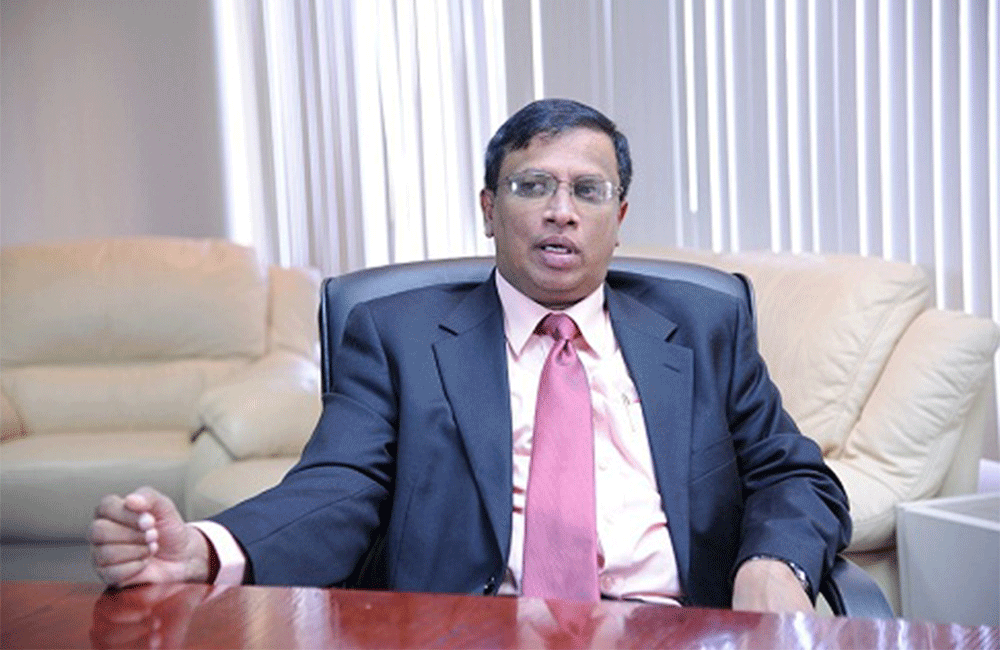
TNA says the international community betrayed the Tamil people
The Tamils feel betrayed by the international community, says Tamil National Alliance (TNA) MP M.A. Sumanthiran.
Sumanthiran’s comments come after former Defence Secretary, Gotabaya Rajapaksa was named as the presidential candidate of the Sri Lanka Podujana Peramuna (SLPP) on Sunday (11) by former President Mahinda Rajapaksa. Controversy meanwhile surrounds the renunciation of Gotabaya’s US citizenship.
However, concerns have been raised as to how the US had permitted his renunciation of citizenship when he was facing litigation in the US and also faced allegations of human rights violations among others before the UN Human Rights Council (UNHRC).
Sumanthiran has further noted that the Tamil community in the country is more united than during the war and would stand together at decisive moments.
He has further stated that the TNA played a crucial role to ensure the Mahinda Rajapaksa Government was defeated in 2015 and once again in defeating the 52 day political coup last year.
According to the MP, if the political coup last October was not defeated then, former President Mahinda Rajapaksa would have come to power.
Page 464 of 682